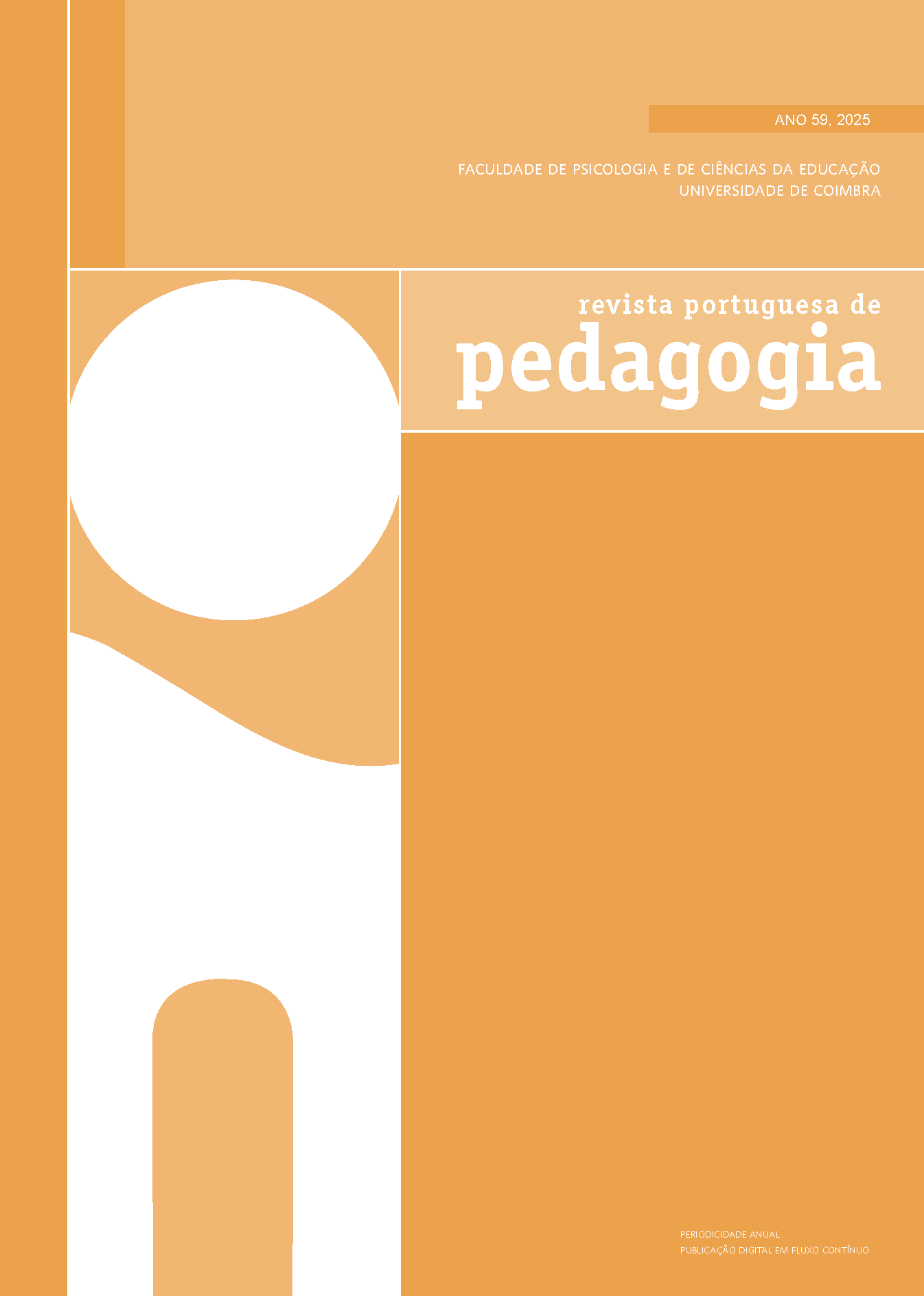The mindful trait and the socio-emotional level of education professionals
profile of the Portuguese participants in the European Hand in Hand project
DOI:
https://doi.org/10.14195/1647-8614_59_02Keywords:
Teacher training, Socio-emotional education, Intercultural school, Mindfulness, Socio-emotional competencesAbstract
The global cultural transition has generated profound changes in the way of life and social processes. Given cultural diversity, education professionals have faced numerous challenges to work and teach. In challenging learning environments, socio-emotional and mindfulness training can protect and strengthen the skills of educational agents. The goal is to explore and link the mindfulness practices and socio-emotional levels of Portuguese educational professionals. The Portuguese version of the SEC-Q and the FFMQ were applied to 221 education professionals who participated in the Hand in Hand program. Spearman correlation analyses were carried out between the dimensions and scores of both questionnaires, and comparisons were made with sociodemographic variables using the Kruskal-Wallis and Mann-Whitney tests. The participants had a medium-high socio-emotional level (M=4.0; SD=0.37). On the other hand, more modest values were observed for the mindful trait (M=3.25; SD=0.46), with teachers showing difficulties in the dimensions of non-reaction and non-judgment. The FFMQ description dimension appears to be related to the SEC-Q self-concept (r=0.477; p<0.01), global socio-emotional development (r=0.427; p<0.01) and acting with awareness of the FFMQ (r=0,408; p<0,01), while the mindful dimensions of observing and acting with awareness appear to be related to the socio-emotional dimensions of not reacting (r=0.404; p<0.01) and not judging (r=0.436; p<0.01), respectively. The participants have positive socio-emotional levels. However, the data suggests that it is necessary to increase investment in the development of all the mindful dimensions, especially the dimensions of non-judgment and non-reaction.
Downloads
Downloads
Published
How to Cite
Issue
Section
License
Copyright (c) 2024 Revista Portuguesa de Pedagogia

This work is licensed under a Creative Commons Attribution 4.0 International License.
Authors retain copyright and grant the journal right of first publication with the work simultaneously licensed under a Creative Commons Attribution License that allows sharing the work with recognition of authorship and initial publication in Antropologia Portuguesa journal.




